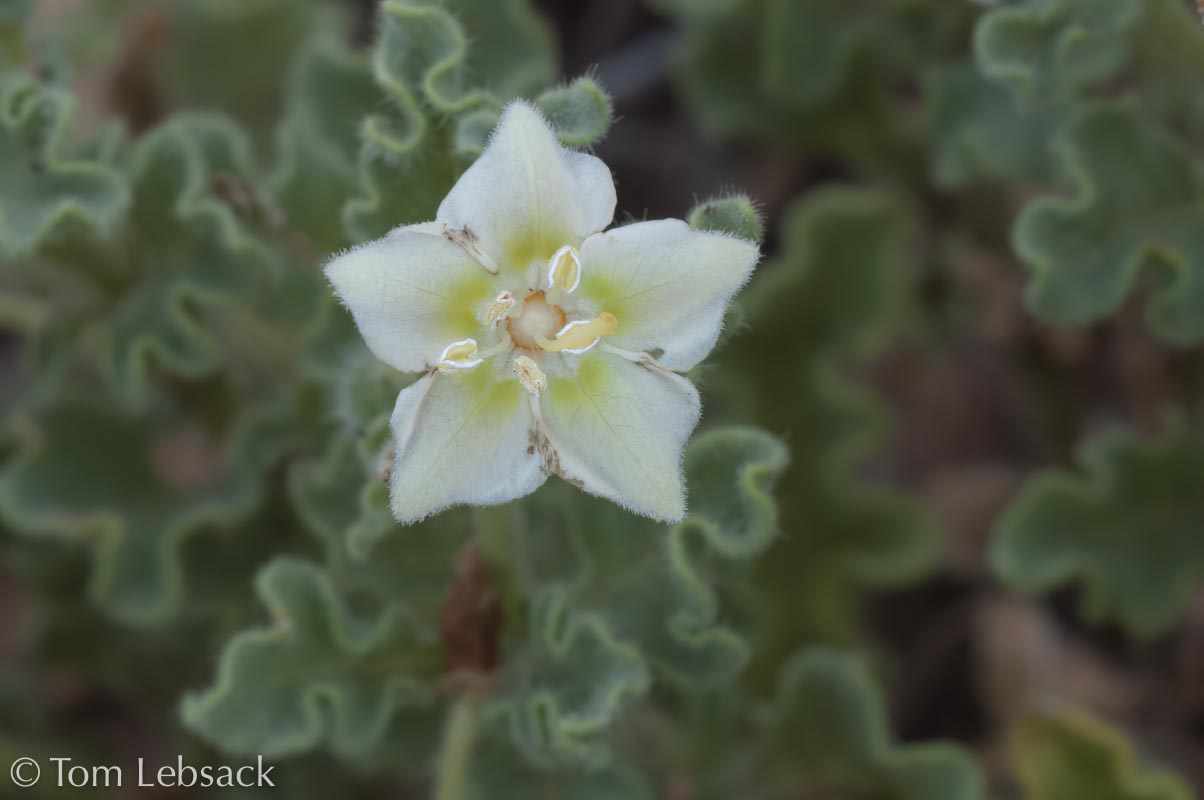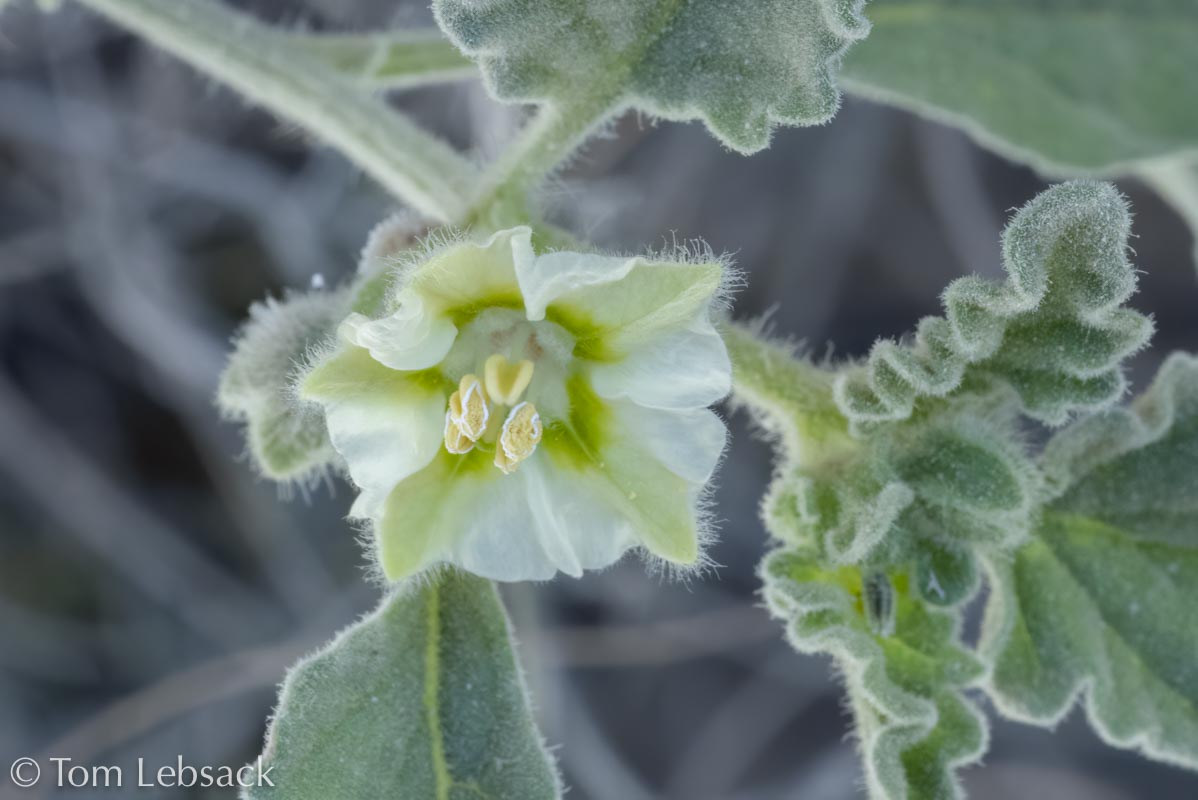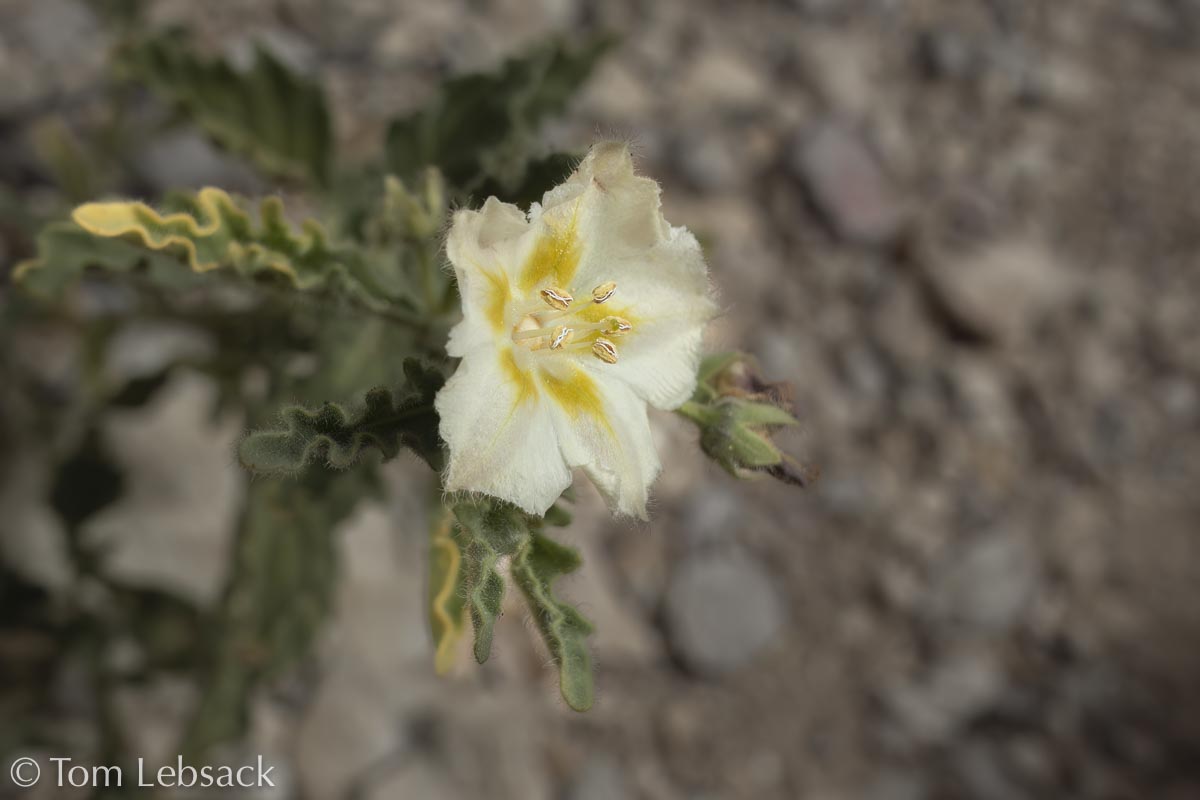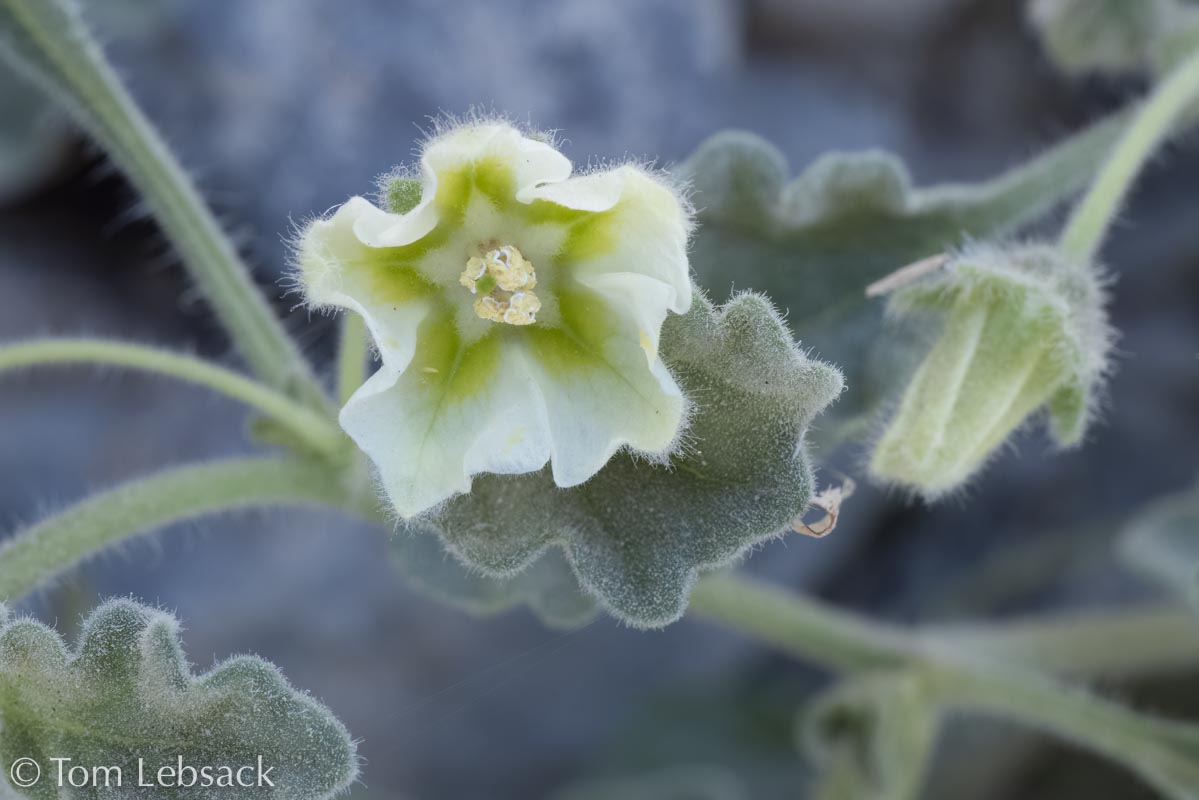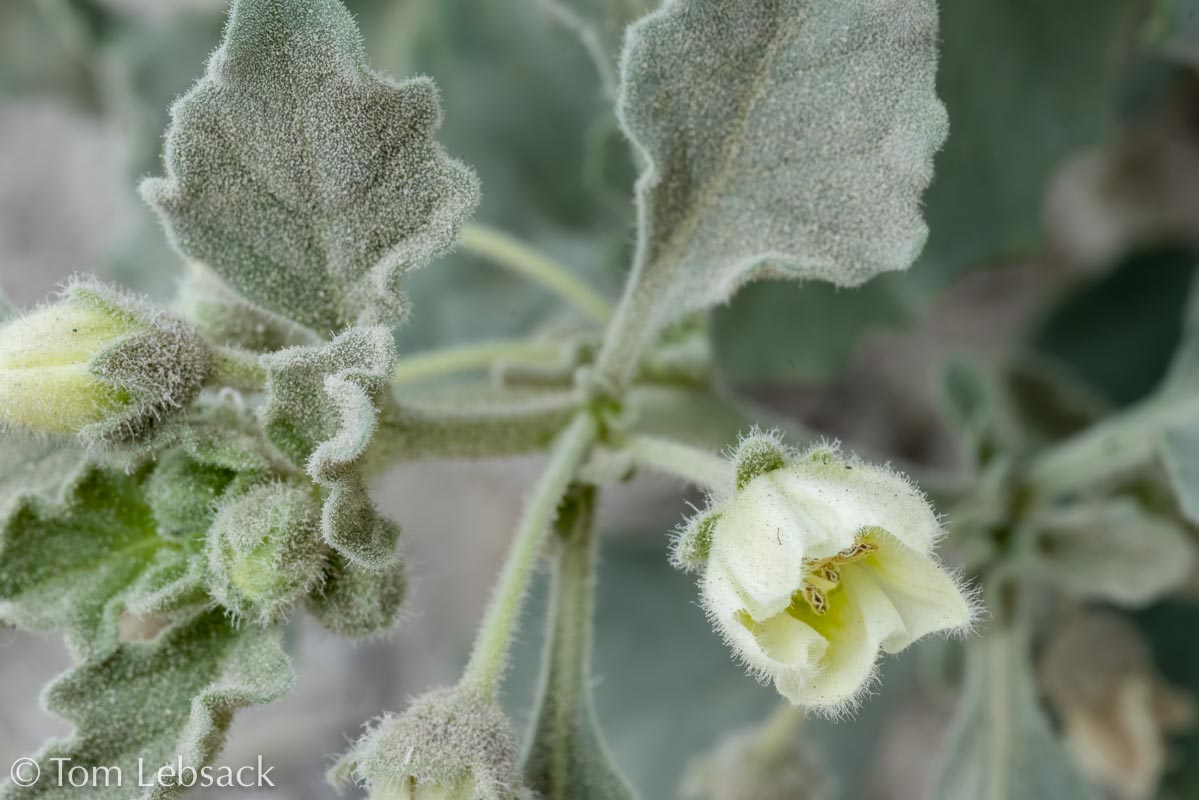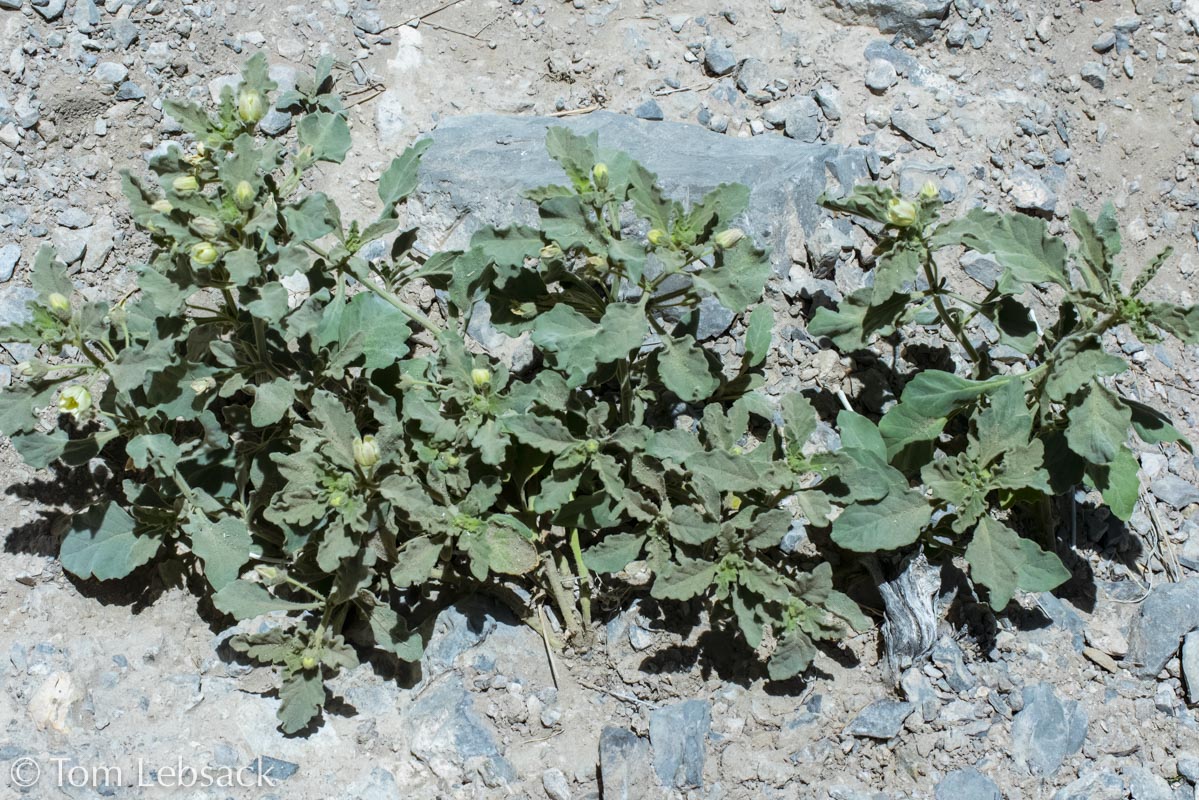Texas Wildbuds
Chamaesaracha villosa
(Woolly False Nightshade)
| Scientific Name | Chamaesaracha villosa | USDA PLANTS Symbol | CHVI9 |
| Common Name | Woolly False Nightshade, Trans-Pecos Five-eyes | ITIS Taxonomic Serial No. | 30512 |
| Family | Solanaceae (Nightshade) | SEINet Reference |
Click Here |
| Description | Habitat: Desert environments. Plant: Sticky, extensively branched, woody perennial with hairy stems forming mounds from 4 to 12 inches high; stems with dense, pubescent hairs, long forked hairs, and occasional glandular hairs. Leaves: Dark green, ovate to ovate-lanceolate leaves with wavy, scalloped edges; relatively broad compared to C. sordida, 1-1/2 to 2-3/4 inches long and 5/8 to 1-1/4 inches wide, often trapping grains of sand or dirt; petioles about 3/8-inch long. Inflorescence: Pale greenish-yellow star-shaped flowers, solitary or in pairs on pedicels about an inch long from leaf axils; blossoms 3/4-inch across with five pointed lobeschma and five tufts of white cottony hairs near the base of the stamens. Bloom Period: Summer and fall. References: "Little Big Bend" by Roy Morey and "Manual of the Vascular Plants of Texas" by Correll and Johnston. |
BONAP Distribution Map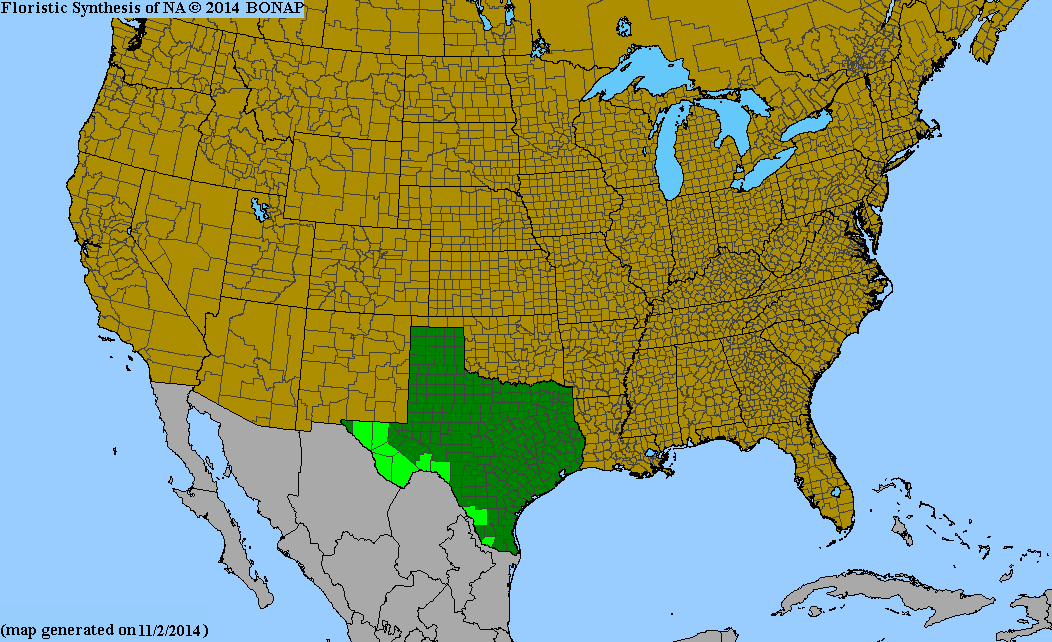 Map Color Key |
Texas Status: Native |
Banner photo of Castilleja indivisa and Lupinus ssp. taken along FM 1323 north of Johnson City, Blanco County
© Tom Lebsack 2025
Every attempt is made to provide accurate, up-to-date, and relevant information, but the completeness or accuracy of any information presented on this website cannot be guaranteed. I use authoritative references to insure high standards of accuracy and review and update the information frequently.
